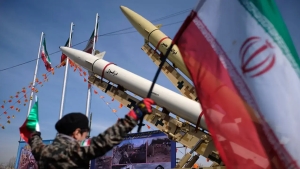Gold mining activities cause concern in Ay Khanim

Gold mining operations have begun in the ancient city of Ai Khanum, located in the northern Takhar province of Afghanistan, through the cooperation of Chinese companies and the Taliban government. This was reported by Zamin.uz.
Local sources report that the mining activities are taking place near the archaeological site located in the Dashti Qala district, along the Red River.
This area has long been one of the centers of the Greco-Bactrian state and holds historical and cultural significance. Experts express concern that these activities could seriously damage ancient monuments.
According to them, this site in Takhar province is an important source not only for studying Afghanistan's history but also that of the entire region. The city of Ai Khanum was established in the 3rd century BC and is considered one of the cultural and economic centers of the Greco-Bactrian era.
Previous excavations have uncovered ancient theaters, temples, inscriptions, and many other significant artifacts here. This further emphasizes the importance of the area.
At the same time, the Taliban government has set the restoration of the economy and replenishment of the state budget through the use of natural resources as a primary goal. Great attention is being paid to wealth such as gold, oil, and lithium.
China is striving to strengthen its influence in Afghanistan's mineral sector. Experts believe this cooperation will further expand Beijing's economic influence in the region.
However, historians and archaeologists warn about the negative impact of this process on cultural heritage. They believe that gold mining operations pose a risk of completely destroying millennia-old historical traces.
This could cause irreparable damage not only to Afghanistan's but also to the entire region's cultural heritage.







